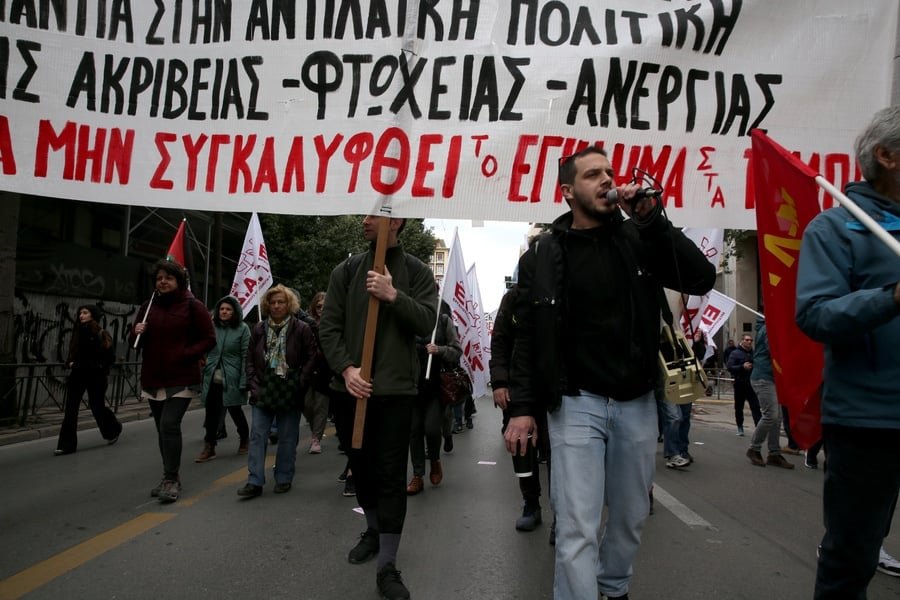
A Greek court has blocked the participation of the Hellenic Air Traffic Controllers’ Union (EEKE), in tomorrow’s 24-hour strike in Greece organized by ADEDY, ensuring that scheduled flights on Wednesday, October 1, 2025, will not be affected.
Nevertheless, the strike is expected to cause widespread disruption across Greece. Organized by the country’s largest unions, GSEE and ADEDY, the walkout will affect public services, schools, hospitals, urban and intercity transport, ports, and railways.
Teachers’ unions—including the Greek Primary Teachers’ Federation (DOE), the Greek Federation of Secondary Education State School Teachers (OLME), and the Federation of Private School Teachers (OIELE)—have urged members to participate, while the Panhellenic Federation of Railway Workers (POS) and ferry operators will also join in.
The strike is a response to the government’s new labor law, which introduces longer workdays, flexible scheduling, and changes to overtime regulations. Union leaders warn that these reforms could increase workloads and reduce employee protections, prompting strong opposition across multiple sectors and widespread industrial action.
Nationwide strike in Greece: Scope and participation
The nationwide strike is expected to significantly disrupt daily life across Greece. Local government offices, hospitals, and schools are likely to experience service interruptions, while urban transport, railways, ports, and ferries will be heavily affected.
Teachers’ unions have mobilized their members, and railway and ferry workers are joining, demonstrating the broad cross-sector impact of the action.
Despite the scale of the strike, air travel will continue uninterrupted due to the court ruling, highlighting the legal and operational complexities involved in large-scale labor actions in Greece.
The labor law: Key provisions and controversy
Unions are protesting the recently passed law, “Fair Work for All,” which introduces major changes to work schedules and employment contracts:
- Longer workdays: Employees may work up to ten hours a day for four days a week throughout the year.
- Flexible scheduling: Employers can arrange working hours weekly or continuously depending on operational needs, with employees’ consent.
- Overtime rules: Workers may be asked to work up to thirteen hours per day under voluntary agreement, with a 40 percent pay increase.
- Worker protections: Employees are protected from dismissal if they refuse extra hours, and limits on weekly and annual working hours remain in place.
Union leaders argue that these provisions could increase workloads and undermine collective bargaining, raising concerns about worker fatigue and potential exploitation. The law’s flexibility in scheduling and overtime, they say, shifts power heavily toward employers, prompting widespread opposition.
Economic and social implications
Economists and labor experts suggest that the strike highlights ongoing tensions in Greece over labor reform and the balance between economic flexibility and workers’ rights. Public sector employees, transport workers, and teachers are at the forefront, signaling strong resistance to policies perceived as weakening labor protections.
The ruling against air traffic controllers illustrates the legal and operational limits of strikes in essential services, while the broader industrial action underscores persistent challenges in labor relations. Analysts note that the way in which the government engages with unions in the coming months could set the tone for labor policy and industrial stability in Greece for years to come.


